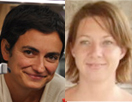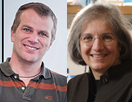This session will provide an overview of progress in malaria control and elimination over the past decade, and the ongoing transition from a one-size-fits-all to a tailored approach.
Learning Objectives
- To understand the progress in malaria control and elimination over the past decade, including successes, failures, and challenges.
- To understand the WHO policy-setting process for malaria, and the public health cycle linking research, policy-setting, programme implementation, and surveillance/monitoring/evaluation.
- To appreciate the opportunities and challenges for malaria control and elimination in the near future, and the implications for ultimate malaria eradication efforts.
This lecture will describe the determinants, strategy and methods of the previous attempt at global malaria eradication, the subsequent course of events, both successes and failures, and set out the lessons to be learned from that attempt, to avoid repeating historical errors
Learning Objectives
- To understand the value of a historical perspective in planning future public health action.
- To learn the strategic and tactical lessons from the first eradication attempt.
- To gain the necessary broad perspective and avoid repeating the errors of the past.
The session will review lessons learned from the Smallpox Eradication Program, the Polio Eradication Initiative and regional and national Measles Elimination Programs. The lessons relate to epidemiologic, virologic, immunologic, sociologic and anthropologic sciences, and management, vaccine supply and logistics.
Learning Objectives
- To review the epidemiology of the disease, in particular details on modes of transmission, fundamental to a successful elimination or eradication program.
- One must have the appropriate intervention tools (vaccines, drugs, diagnostics) to achieve elimination and, ultimately, eradication.
- Effective surveillance is fundamental to all aspects of disease eradication and must be increased progressively as cases become fewer and harder to detect.
- The final kilometers on the road to eradication are the most difficult.
- An elimination or eradication program must be flexible and an ongoing research component must accompany the public health interventions and be ready to address unexpected obstacles that arise.
This session will provide an introduction to malaria biology, including a rigorous approach to the basic and applied issues related to malaria. Areas covered in detail include malaria epidemiology, parasite-vector relationships, vector control, cell biology, and biochemistry of the parasite red cell interaction, drug action and resistance mechanisms, parasite genetics and cell biology.
Learning Objectives
This session will allow participants:
- To understand the biology and life cycle-basis for this disease, including global public health aspects of malaria.
- To understand the incidence and distribution of infection and disease within human populations; determinants of frequency and distribution; methods of measurement; magnitude and consequence of disease on the population.
- To consider the interrelationship of organisms and their environments, including identify ways of reducing the incidence and/or severity of disease within populations; obstacles; consequences.
- To understand behavioral change as an intervention.
- To possess a historic perspective while appreciating recent developments in the field.
This session will provide an introduction of the concept of surveillance-response and on how surveillance-response approaches/systems can and should be tailored to different transmission/elimination settings.
Learning Objectives
- To understand the concept of surveillance as intervention and how this leads to tailored surveillance response-approaches/systems in different transmission/elimination settings
- To distinguish the surveillance-response approaches that are based on the minimal essential data collected in space and time to the traditional concept of monitoring and elimination where generally maximally possible data are collected.
This session will provide an overview of different aspects of mosquito biology that are key to parasite development and transmission.
Learning Objectives
- To understand vector dynamics and the complexity of malaria transmission.
- To understand the biological features shaping the vectorial capacity of Anopheles mosquitoes.
- To gain knowledge of the genetics of vector-parasite interactions.
This session will review the epidemiological and operational features of the three main vector control tools (Insecticide Treated Nets, Indoor Residual Spraying and Larviciding).
Learning Objectives
- To understand the essential concepts and epidemiological features of ITNs, IRS and Larviciding.
- To understand the comparative operational strengths and weaknesses of ITNs, IRS and larviciding as malaria control interventions, as well as their combinations.

This session will provide a discussion of different strategies for mosquito control alternative to the use of insecticides.
Learning Objectives
- To review limitations of current vector control strategies.
- To provide an understanding of the impact of targeting different aspects of mosquito biology on malaria transmission.
- To review the availability of alternative control methods.
- To discuss mosquito behavior and targeted malaria control.


The recent call for malaria eradication has re-emphasized the importance of bringing Plasmodium vivax into the research agenda. Plasmodium vivax remains the most widely distributed human malaria parasite with 2.85 billion people living at risk of infection. Noticeably, the number of yearly clinical cases seems to be increasing from 70-80 million to 300 million cases and these include cases of severe disease and death exclusively associated with P. vivax. Moreover, experts agree that present tools against Plasmodium falciparum will not be effective against P. vivax, reinforcing the development of control measures for this species if eradication is to be achieved.
Learning Objectives
- To reinforce the public health importance of Plasmodium vivax.
- To review the key gaps in knowledge of this human malarial parasites.
- To raise awareness of the difficulties in eliminating P. vivax due to relapses and asymptomatic patients.
This session will provide a review of the Zanzibar case study with its key epidemiological, control and health systems features.
Learning Objectives
- To expose participants to the real-life malaria elimination situation on Zanzibar Island, through a structured and well documented case studies.
- To improve analytical understanding of key challenges for malaria elimination.
- To improve understanding of pragmatic solutions for the current challenges to malaria elimination.
This session will address the management of uncomplicated and complicated malaria.
Learning Objectives
- To know the options of treating uncomplicated and severe malaria in endemic and non-endemic countries.
- To assess management options of severe malaria.
This session will illustrate the role of supply chains in delivering malaria interventions effectively, the main barriers to coverage and the role of supply chains in the context of high transmission versus malaria elimination or eradication settings.
Learning Objectives
- To illustrate the role of supply chains for effective malaria control.
- To understand how supply chains differ in the context of high transmission versus malaria elimination or eradication settings and their overall role in the attaintment of elimination goals.

This session will provide a moderated discussion on the basics of health systems thinking and on how disease specific interventions can be tailored to given health and social systems, and in general also contribute to health systems strengthening.
Learning Objectives
- To understand the principles of integrated approaches of malaria interventions in different endemic settings with different health and social systems.
- To develop and understand the key principles and practical approaches for integrated elimination efforts under health systems constraints.

Malaria is a complex disease that requires a multidisciplinary approach to comprehensively describe determinants of local transmission. This session will go beyond the human-parasite-vector discussion to address social and cultural factors that impact the local patterns of transmission. The session will also discuss how these factors could be addressed with alternative control strategies that combine community sensitization and educational approaches (among others).
Learning Objectives
- To highlight key social, cultural and economic factors that impact the pattern and the level of local malaria transmission.
- To discuss possible strategies that could be incorporated into malaria control efforts to address these social factors.
- To review which of these possible strategies have been implemented in the past and the extent to which they were successful.
In this workshop, the participants will, through iterative discussions, develop an outline for elimination planning in two different island settings (endemic setting, and health and political systems).
Learning Objectives
- To understand how to assess the feasibility of moving from intensified control to elimination.
- To analyze an endemic situation and understand the basics of planning elimination.
During this session we will weigh the evidence for whether or not malaria elimination and eradication make sense as a way to use constrained health resources.
Learning Objectives
- To understand why we might consider investing substantial resources to get rid of a small burden of malaria.
- To understand the current economic evidence for and against investing in national or sub-national malaria elimination.
- To understand the current economic evidence for and against investing in malaria eradication.
This session will provide a review of available and potential new diagnostic tools for malaria elimination. It will include a discussion about the best use of available tools and current gaps for further development.
Learning Objectives
- To review current developments on diagnostic tools for malaria control and elimination.
- To identify current diagnostic gaps for malaria elimination and propose solutions.
- To discuss diagnostic strategies in the short and medium term to accelerate the elimination of malaria.
Environmental factors play a major role in malaria transmission. They include issues related to the natural environment (climate, land cover) and the human-made environment (housing conditions, land use, urban growth patterns). To address these issues, environmental interventions played a major role in malaria control efforts in the past, but are not at center stage for current efforts. This session will review some historical cases, and then discuss the challenges, feasibility, and likely sustainability of these interventions for achieving malaria eradication at present.
Learning Objectives
- Briefly review the types of environmental interventions for malaria control.
- Offer a historical perspective of the impact that environmental interventions had on malaria control.
- Discuss the feasibility of environmental interventions as one strategy for current efforts of malaria eradication.
This session will consist of a lecture with short discussion blocks to generate the basis for the potential and principles of applied modeling for public health action.
Learning Objectives
- To develop and understand the position and potential of modeling for malaria elimination/eradication with regards to: (i) feasibility of engaging in elimination, (ii) integrated, mixed interventions, and (iii) the cost-effectiveness of the intervention mixes.
- To learn about novel tools for elimination planning (applied modeling and WHO/Elimination Scenario Planning).
The development and appropriate incorporation of a vaccine into an integrated malaria control and elimination, and ultimately eradication, program may well be the lynchpin needed to achieve the vision of a world free of malaria. A recent WHO-sponsored update to the Malaria Vaccine Technology Roadmap has highlighted two overlapping strategic goals: 1.) Prevention of clinical malaria; and 2.) Reduction of malaria parasite transmission. These two strategic goals drive three desired outcomes: 1.) Preventing infection; 2.) Averting cases; and 3.) Blocking transmission. An overview of efforts directed at achieving one or more of these outcomes will be presented for discussion.
Learning Objectives
- To review the outcome of the recent WHO-sponsored update to the Malaria Vaccine Technology Roadmap as a strategic foundation for the development of new malaria vaccines.
- To discuss the biological, technical and regulatory challenges and opportunities in malaria vaccine development.
Anti-malarial drugs are an essential intervention to reduce malaria disease burden. Currently available drugs are used to treat symptomatic people in health care facilities (passive case detection) and in special populations to reduce disease burden such as intermittent presumptive treatment in pregnancy (IPTp) and seasonal malaria chemoprevention (SMC).
When anti-malarial drugs are used for eradication objectives, there is a need to use currently available drugs differently and also to develop new drugs. We need to progress from incomplete cure to complete cure of the individual and also to encourage new strategies to move drugs into community based programs that target the asymptomatic, yet still infectious, human reservoir of infection in the community.
Complete cure, single dose, fixed dose combination regimens that are safe and well tolerated will be the goal of current and future drug development initiatives.
Learning Objectives
- Compare drug based strategies for control (disease burden reduction) and elimination (parasite elimination and transmission blocking).
- Understand how evolutionary biology principles can assist the development of new anti-malarial drugs for elimination and the deployment of current anti-malarial drugs to prevent or delay the emergence of drug resistance.
Global governance of the malaria enterprise shares some of the challenges with other global health initiatives, augmented given the technical challenges (resistance, financial gaps), the emerging development agenda (post-2015 priorities), and unique aspects of the longer term goal (control through to eradication).
Participants will discuss how malaria, in the context of eradication, confronts major challenges to governance and explore alternate models of governance to achieve long-term success.
Learning Objectives
- To understand the current malaria governance framework, its context, and the existing distributed leadership models of the global malaria enterprise.
- To explore critical differences between governance and architecture structures likely needed for malaria control versus eradication.
- To examine how the emerging post-Millennium Development Goals and post-2015 agenda could challenge assumptions about malaria governance and architecture.
















